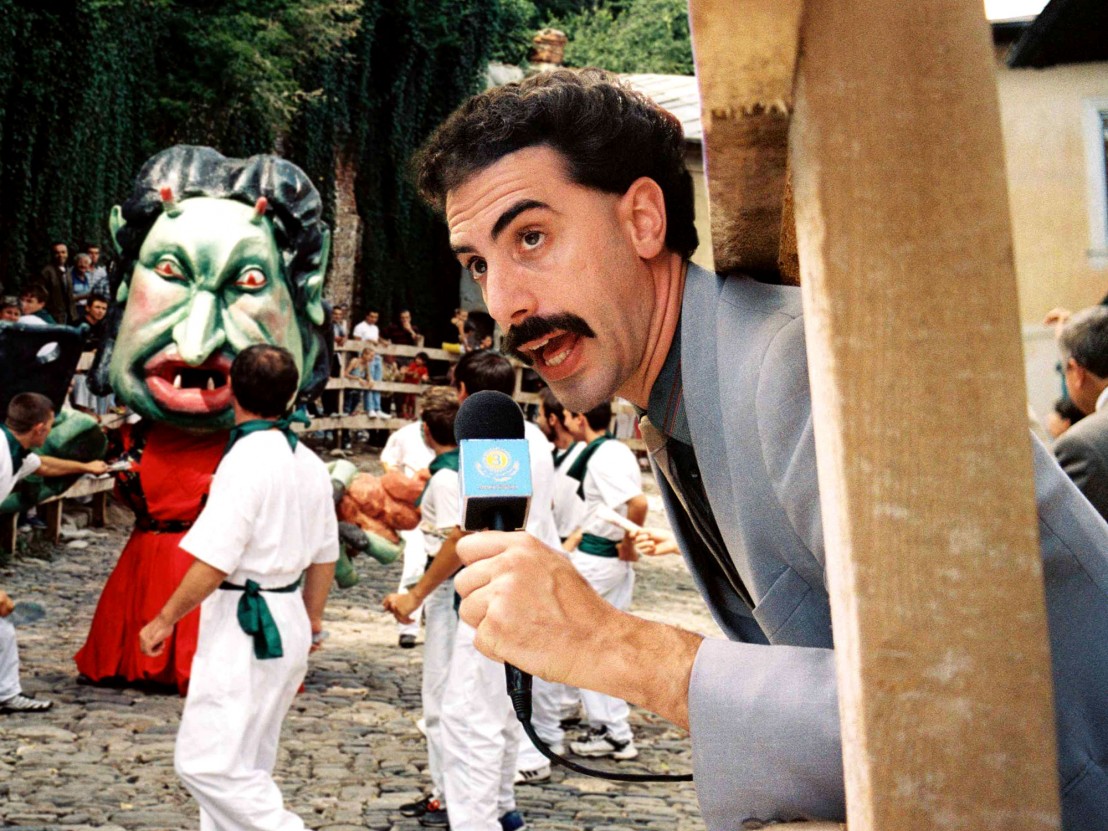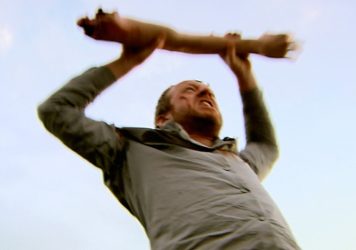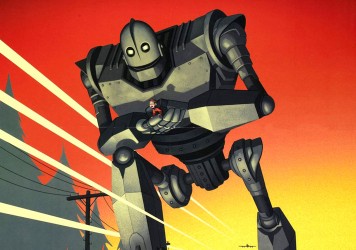
Back in 2006, I snuck into my local multiplex with two friends to watch Borat: Cultural Learnings of America for Make Benefit Glorious Nation of Kazakhstan. Over the next 84 minutes I laughed harder than I have ever laughed at anything before or since. The packed cinema was full of other people doing exactly the same. A few months later, my classmates and I would watch a succession of teachers grow increasingly panicked as they allowed us to watch Borat during the final weeks of term. It’s fair to say the film was a sensation.
Borat gained instant notoriety and earned its creator and star, Sacha Baron Cohen, global recognition. Ten years ago it resonated with moviegoers chiefly because it combined crudity, nudity and a whole host of politically incorrect moments, trading off of audiences’ prejudices and preconceptions in order to generating its edgy, unavoidably juvenile, brand of humour. But how does the film hold up when viewed today?
The first thing that hits you is just how outrageous a character Cohen created with Borat Sagdiyev, the Kazakhstani reporter. The film begins with him giving a tour of his hometown, along the way introducing us to the “town rapist, town mechanic and abortionist” and gravely announcing that his country has problems: “economic, social and Jew.” It’s no wonder the Kazakh government threatened to sue Cohen after he appeared as Borat at the 2005 MTV Movie Awards.
Of course, Borat is a character designed to be as offensive as possible, and it’s this that enables him to draw equally entertaining and obscene behaviour out of the people he meets. The only problem is that in doing so, Kazakhstan is made to stand as a symbol for everything that is antisemitic, misogynistic or just plain wrong about Borat.
In reality, Kazakhstan is a fairly progressive place, but for any viewer with no prior knowledge of the country it was all-too easy to accept this exaggerated fictional Kazakhstan. If the majority of the film is punching up by exposing some of the frankly embarrassing behaviour of the American public, then its portrayal of Kazakhstan is the one time it’s punching down.
The action becomes a lot more provocative (and hilarious) once Borat arrives in the US. Simply saying hello to passers-by is enough to make them sprint several blocks away or threaten to kill him, but it’s when Borat gets into conversations with ordinary people that the film’s true genius becomes clear. Borat meets a comedy teacher to learn about American humour, and talks about his brother Bilov, who is kept in a cage because of his ‘funny’ “facial retardations”, escaping and raping their sister. It’s a genuinely provocative moment, yet Cohen still manages to get his interviewee to high-five him in celebration.
Cohen uses this same tactic to more subtle effect later on as a means to show how in America, money talks. Borat goes to a car dealership and the salesman happily answers his questions about how fast he’d have to drive to kill gypsies without a hint of condemnation. Even worse is a scene in a gun shop where Borat asks for the best gun to defend him from Jews; the owner calmly recommends either a 9mm or a .45. This encounter – and several others like it – raises a troubling question: are these people just going along with it out of politeness and the will to make a sale, or do they think a desire to slaughter Jews or gypsies is normal enough not to merit comment?
Besides these fairly low-key conversations that litter the film, it is perhaps best known for its stunt set-pieces. In one scene Borat chases his producer Azamat naked through a hotel, interrupts a live local TV broadcast and, most terrifyingly of all, insults an entire rodeo audience by trashing the one thing they prize more than anything else: America.
He starts off well, praising the US Army’s efforts in Iraq in increasingly hyperbolic fashion, until proclaiming, “may George Bush drink the blood of every man, woman and child in Iraq!” to deafening cheers. The rodeo audience turns from a cheerful family bunch into a bloodthirsty mob when Cohen launches into a rendition of the Kazakh national anthem before calling all Americans “little girls”. Although we don’t see much of it on screen, Cohen’s stunt almost caused a riot among the 4,000-strong crowd.
It’s moments like this that made Borat such a unique comedy, one that was truly of its time. It’s hard to imagine similar gags working today, simply because leaked footage would be all over Twitter long before the cameras had stopped rolling. There’s no denying that some of the Borat’s humour loses its potency once you’ve transitioned fully into adulthood, but it’s also remarkable how much of the film remains hilarious, shocking and insightful.
Published 23 Feb 2016

Zoolander 2 uses them terribly, but history tells us that the art of the bit part is anything but simple.

Actor Steve Oram has decided to make a movie, and the results are spectacularly disturbing.

By Tom Bond
Brad Bird’s soaring 1999 animated feature taught us that true heroism is much more than quips and spandex.